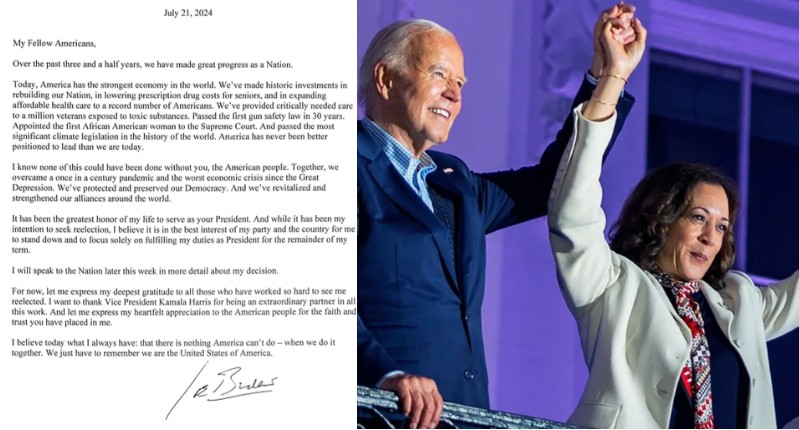Obama’s White House Ethics Czar Criticizes Judge Cannon
Norm Eisen, a former White House ethics czar, sharply criticized Judge Cannon for what he perceives as biased treatment towards Donald Trump. In a recent CNN interview, Eisen condemned Cannon’s decision to order the release of unredacted witness lists by Special Counsel Jack Smith. He suggested that this decision, along with others, raises questions about Cannon’s impartiality, particularly concerning the former president.
Eisen’s remarks highlight growing concerns over Judge Cannon’s judicial conduct, especially as her decisions have been overturned by appellate courts. He emphasized that even conservative courts have found fault with Judge Cannon’s actions, indicating the extent of her alignment with far-right ideologies. The apparent pattern of decisions favoring Trump underscores worries about the judge’s objectivity in handling legal matters related to the former president.
Questionable Judicial Decisions Under Scrutiny
Judge Cannon’s attempt to appoint a special master to oversee document review was rebuffed by the 11th Circuit, further fueling doubts about her judgment. Eisen’s criticism suggests that Judge Cannon’s allegiance to Trump may be influencing her legal rulings, potentially compromising the integrity of the judicial process. By challenging Judge Cannon’s decisions, Eisen brings attention to the need for impartiality and adherence to legal standards, especially in high-profile cases involving political figures like Trump.
The implication of bias in Judge Cannon’s rulings raises broader concerns about the independence of the judiciary and its ability to uphold the rule of law without partisan influence. Eisen’s comments serve as a reminder of the importance of judicial integrity and the consequences of perceived favoritism in the legal system.
Allegations of Favoritism and Political Influence
Eisen’s assertion that Judge Cannon’s actions may be motivated by loyalty to Trump underscores fears of political interference in the judiciary. The notion that Judge Cannon is using her position to assist Trump in evading accountability further erodes public trust in the justice system. By highlighting Cannon’s apparent alignment with Trump’s interests, Eisen calls into question the integrity of her judicial decisions and advocates for corrective action to address potential biases.
The implications of political favoritism in Judge Cannon’s rulings raise concerns about the fairness and impartiality of the legal process. Eisen’s criticism emphasizes the need for accountability and oversight to ensure that judges remain faithful to their judicial duties and uphold the principles of justice without succumbing to partisan pressures.
Risks Posed by Judicial Actions
Eisen’s condemnation of Judge Cannon’s decision to release unredacted witness lists underscores the potential risks to individuals involved in legal proceedings. By exposing witnesses to potential harm, Judge Cannon’s ruling may have serious consequences for their safety and well-being. Eisen’s concern for the individuals affected by Judge Cannon’s decision highlights the ethical responsibilities of judges to prioritize the protection of all parties involved in legal cases.
The discussion surrounding the dangers posed by Judge Cannon’s actions highlights the broader implications of judicial decisions on the lives of individuals and the integrity of the legal system. Eisen’s remarks draw attention to the need for judges to exercise caution and discretion in their rulings to prevent harm and uphold the principles of justice.
Calls for Judicial Accountability
Eisen’s call for the Justice Department to take action against Judge Cannon reflects broader concerns about the need for accountability within the judiciary. By advocating for Cannon’s removal from the case, Eisen seeks to address perceived biases and ensure the fair and impartial administration of justice. His stance underscores the importance of holding judges accountable for their actions and maintaining public confidence in the judiciary’s integrity.
The demand for judicial accountability resonates with calls for transparency and fairness in the legal system. Eisen’s push for corrective measures serves as a reminder of the importance of upholding ethical standards and ensuring that judges remain impartial and independent in their decision-making.
Upholding the Rule of Law
Eisen’s critique of Cannon’s actions ultimately centers on the broader imperative of upholding the rule of law. By challenging perceived biases and advocating for accountability, Eisen reaffirms the fundamental principles of justice and equality before the law. His remarks underscore the need for vigilance in safeguarding the integrity of the judicial process and ensuring that no individual, regardless of their political affiliation, is above the law.
In emphasizing the importance of judicial integrity and impartiality, Eisen’s comments reflect a commitment to preserving the foundational principles of democracy and the rule of law. His advocacy for accountability and fairness serves as a testament to the enduring value of upholding justice in society.
Table of Contents
Discover more from OGM News NG
Subscribe to get the latest posts sent to your email.














